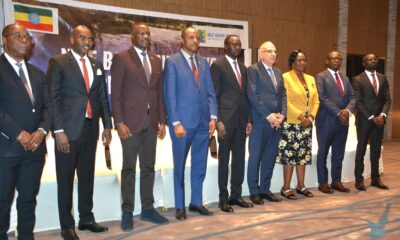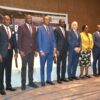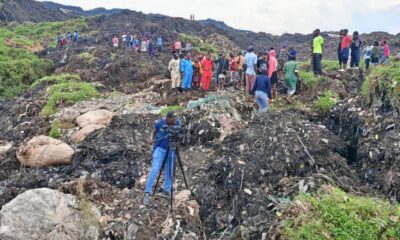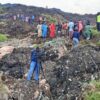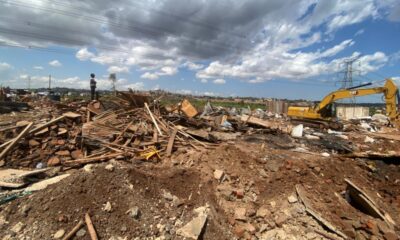Guest Writer
Land acquisition framework: More still needs to be done
Acquisition of land by government for various development projects has for long been mired in controversy and dissatisfaction from private individual landowners. All this largely stem from delayed compensation or lack of consensus on acquisition, compensation and relocation terms.
A recent survey by Africa Institute for Energy Governance (AFIEGO) of persons whose land had been compulsorily acquired by government for various projects such as electricity transmission, reveal a distressing picture. The anger from these people due to compensation and relocation delays was palpable.
Those surveyed labeled government a “promise breaker” who should not be trusted by anyone. Government was also labeled a poor planner which haphazardly acquires land before securing compensation money and lands for relocation of affected persons.
In the face of the above, it came as a relief when the Joint Venture Partners – CNOOC Uganda Ltd, Total E&P Uganda Ltd and Tullow Oil Uganda Pty Ltd, and government, who are seeking to acquire land for oil infrastructure in the Albertine region, developed a Land Acquisition and Resettlement Framework.
This framework will guide the imminent acquisition of land for infrastructure such as the export pipeline, finished products’ pipeline, two central processing facilities and others.
The framework contains a number of positive aspects. Among these is the fact that the framework contains the intentions of all three Joint Venture Partners and government relating to land acquisition.
The framework, if well used may enable communities to know what to expect in the event that their land was acquired and how to defend their rights against any possible abuses. This is because the framework seeks to standardise and guide the process of compulsory land acquisition in the Albertine region.
In addition, the framework expresses good will about acquiring social licence or local community approval in addition to seeking to promote equity and social justice in the processes of land acquisition.
The framework also formalises plans to conduct censuses of Project Affected Persons (PAPs), develop Resettlement Action Plans (RAPs) and to follow IFC Performance Standards in land acquisition processes among others.
However, the framework falls short on certain aspects that needs to be remedied one of which include the framework’s promotion of use of cut-off dates as a determinant of what property to compensate. Cut-off dates violate Article 26 of the Ugandan Constitution as they promote the possession or acquisition of project-affected person’s property before compensation.
To this extent, the framework contradicts the Constitution which clearly states that any acquisition or possession can only happen after payment of prompt, fair and adequate compensation to the affected person.
In addition, cut-off dates have also been used to intimidate and have created fear and desperation, causing project-affected persons to accept low compensation rates. This has had several negative impacts including on the environment as project-affected persons are forced to settle in sensitive ecosystems such as forests and wetlands.
The Joint Venture Partners and government should not promote use of cut-off-dates well knowing their negative impacts. If the cut-off dates must be used to determine compensation eligibility, they should be time bound.
The other weakness of the framework – a key document for oil development – is that it’s silent on plans for protected areas and this is unfortunate. The Albertine Graben has 70% of the protected areas such as forest reserves, national and game reserves, lakes, rivers, wetlands and others and all these have been and continue to be negatively affected by oil activities.
Not only are some activities taking place in areas such as Murchison Falls National Park, but new licenses are being considered for Ngaji oil block covering Lake Edward and Queen Elizabeth National Park. The Joint Venture Partners should point out how they will properly manage and conserve the above resources amidst oil threats.
In addition, the draft framework should define key terms. Despite recognising that Ugandan laws do not clearly define key terms including prompt, adequate and fair compensation, the framework fails at the same job. Failure to define key terms has seen project-affected persons across the country get delayed and poor compensation that they have sometimes ended up having court battles which they often cannot afford because of delays and high legal costs.
The framework also fails to show how to close gaps between Ugandan laws and the World Bank’s International Financial Corporation (IFC) Performance Standards. Critical gaps between these two include provisions for conducting censuses of project-affected persons, development and implementation of RAPs and construction of houses for PAPs, among others.
The IFC Performance Standards provide for the above while Ugandan laws do not, yet the IFC standards have no force of law and the rule of sovereignty will compel the companies to stick to national laws. There is therefore need for government to improve the national legislation to protect citizens’ interests.
The Minister of Lands, Housing and Urban Development has to put in place regulations for assessment and payment of compensation as mandated in Section 20 of the Land Acquisition Act of 1965. Without these regulations to provide a formula for determining fairness and adequacy of compensation, the good framework by the Joint Venture Partners and government, will not help project-affected persons to reach consensus on fairness of compensation with government and developers.
Planned amendments of the Constitution and other land laws by government to remove the requirement to compensate project-affected person prior to acquisition or possession of their land will also certainly render the good framework useless. These amendments should be dropped and focus on addressing injustice against host communities.
Strengthening of district land boards to perform their roles and establishment of a multi-stakeholder monitoring committee comprising of government, companies, cultural and religious institutions, retired justices of court, CSOs and others to monitor and evaluate the conduct and implementation of the framework and RAPs in Uganda should also be provided for in the framework.
If they are not, the framework will fail to balance Uganda’s oil development agenda with the needs and aspirations of the citizens, especially poor host communities.
The writer is the CEO of AFIEGO
This article was adapted from Uganda Journalists Resource Centre
Comments






